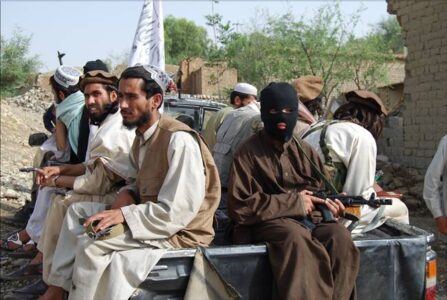
Pakistan continues to provide safe havens to terrorist entities
Even as the Financial Action Task Force (FATF) assesses Islamabad’s compliance with a counter-terror financing action plan, India on Thursday accused Pakistan of continuing to shelter terror groups and failing to act against UN-designated terrorists such as Jaish-e-Mohammed chief Masood Azhar and Dawood Ibrahim.
Ministry of External Affairs spokesperson Anurag Srivastava told a weekly news briefing that Pakistan had addressed only 21 of the 27 items in an action plan given by FATF to curb terror financing and money laundering.
His remarks came against the backdrop of the multilateral watchdog’s virtual plenary meeting, which is widely expected to decide by Friday on retaining Pakistan in its “grey list”.
Srivastava said Pakistani forces arrayed along the Line of Control (LoC) had carried out “3,800 unprovoked ceasefire violations” this year as part of efforts to push terrorists into Jammu and Kashmir. There were also efforts to drop arms and ammunition across the ceasefire line and smuggle weapons and narcotics across the international boundary using drones, he said.
“As is well known, Pakistan continues to provide safe havens to terrorist entities and individuals and has also not yet taken any action against several terrorist entities and individuals, including those proscribed by the UN Security Council, such as [JeM chief] MasoodAzhar, Dawood Ibrahim and (Lashkar-e-Taiba operations commander) Zakirur Rahman Lakhvi,” he said.
“It is understood that Pakistan has addressed only 21 action items so far out of the total 27 points in FATF’s action plan. Six important action items are yet to be addressed,” he said.
Though Srivastava did not give details, people familiar with developments said these six items included action against non-profit organisations and charities used by terror groups such as JeM and LeT to raise funds, and the prosecution of individuals linked to the illegal financial activities of terror groups.
Srivastava noted that FATF has well laid out standards and procedures for putting a country in its grey list or list of nations under increased monitoring and its black list or list of “high-risk jurisdictions subject to a call for action”. After a country is put on a list, it is assigned an action plan to be implemented in a stipulated timeframe.
He said those found wanting in implementing their obligations are “held accountable and subjected to appropriate action”. He added the issue of Pakistan’s compliance is being looked into by the virtual FATF plenary meeting that will get over on Friday.
In February, FATF had warned Pakistan that all deadlines for implementing the action plan had expired. It is widely expected Pakistan will be retained in the grey list.
Srivastava accused Pakistani troops of continuing to engage in unprovoked ceasefire violations, often from civilian areas, to “support the infiltration of terrorists across the LoC”. This, he said, is a clear violation of the 2003 ceasefire understanding between the two sides.
“This year, till date, Pakistani forces have carried out 3,800 unprovoked ceasefire violations. There have also been attempts to drop arms and ammunition across the LoC in the garb of civilian activities. We have also witnessed that Pakistan’s aid and abetment to cross-border terrorism [and] smuggling of arms and narcotic substances has spilled over to the international boundary, including through use of drones and quadcopters,” he said.
India has maintained that there can be no dialogue with Pakistan till the neighbouring country stops backing cross-border terror.
Source: Hindustan Times





